The Shah of Texas Charlie Green Gold Wake Press $24.95 2025
Leona Strong: You wrote this book across two U.S. presidencies, yet it spoke to me as a comment on the present day, 2025. What inspired you to write a satirical book of this nature at this point in history? Was there a particular political or social event that triggered the idea for the book? And how do you hope that the book speaks to current events (if you do)?
Charlie Green: In 2013 I wrote seventy-five terrible pages that were the first seed of the novel. I was frustrated by the rehabilitation of George W. Bush, and I wanted to make fun of both his public stupidity and the cruelty of his policies. But I put it aside because it seemed a little too ridiculous. Then in 2017, watching the monstrous beginning of the Trump administration, I was frustrated to hear so many people say, “This makes me miss George W. Bush.” He’s responsible for at least 500,000 dead in Iraq! We don’t get to Trump without so many precedents of the Bush administration! So I started writing just to entertain myself and to get a little catharsis through making jokes. I shared some of the jokes with my friend Nick, and his encouragement kept me writing and got me thinking more seriously about the project.
I kept Trump aside as much as possible while writing, in part because it was hard to stop thinking about him during the day and I wanted a break, and in part because I kept referring to some of the worst violence caused by the U.S. during the 20th century. I had a sense that some of the jokes would remind people of Trump, but I didn’t see much purpose in joking in a novel about an administration that somehow did something worse every day. I needed a little more distance. I hope the novel gives readers catharsis through laughter, and even though the humor is dark, I want it to provide some kind of hope. Trump isn’t completely sui generis, which means we can figure out how to fight his ideology and administration, even when it seems so bleak.
Leona Strong: Your characters have interesting names: “Dick Dick Dick Dick Dick,” Robert Toose, Adiel S. Thomas, Holly Unlikely, Maude Lynn. Pynchonesque, perhaps? Yet we don’t learn the Shah’s real name until we near the end, which also seems important. Would you talk about the significance and weight of names here?
Charlie Green: I definitely had Pynchon in mind as a touchstone for the novel in many ways. But I was thinking a lot more of Stanley Kubrick’s Dr. Strangelove. One of my favorite lines is “Colonel Bat Guano, if that really is your name.” I love that movie so much. It pushes gallows humor so far, and I tried to see if/how I could mimic that on the page.
Once I started writing, ridiculous names kept popping up in my head. Sometimes the names would come up for a character I was already writing or considering, and some names invited me to create a character. That helped me figure out the novel’s tone too. I wanted to intensify the artificiality of the novel, and names were a quick way to establish the world. (I’m a little sad I scrapped a character named Exposition Jones, but there wasn’t room for him.)
Leona Strong: The narrator addresses the reader frequently. Sometimes this is done with a mocking tone, sometimes conciliatory, sometimes as a humorous aside, and sometimes there seems a genuine attempt to educate. What relationship would you like the reader to have built with the narrator by book’s end?
Charlie Green: That’s such a good question. In an early draft, the narrator was a much fuller character. He had a plot arc that developed in the footnotes. At first it was a way for me to process how I felt about writing the book. I also like pompous narrators (and can be pretty pompous myself), and I like the idea of a narrator who loses track of themself because of the story they’re telling. Toni Morrison’s novel Jazz does that to great effect.
The novel has a character who serves, more or less, as a moral center, but I wanted a figure who presented just how deranging it is to see the contrast between the reality of Bush’s presidency and the nostalgia for it. That kind of character can be both a moral center and combative with their audience. Plus, it felt a little ridiculous to write a novel given the state of the world.
Also, writing a novel is fucking exhausting. I made a rule for myself to write down every thought, idea, image, phrase, etc., so I wrote a lot of my own writing frustrations down in the footnotes and discovered that they added a meaningful dimension to the story and how it’s told.
Leona Strong: There are numerous political and social statements made throughout the novel. What questions would you like readers to come away asking themselves? Or what do you hope they’ve learned?
Charlie Green: I hope they see some of the precedents for Trump from the mid-20th century on. I also decided to include references to things that the reader might not know and would be curious about to the point that they’d look things up. Mainly, though, I wanted to remind myself and readers of how awful the Bush administration was. Being nostalgic for his disastrous rule makes cruel and illegal actions seem acceptable, and no part of me wants to accept those years as normal.
Leona Strong: You coin some terrific neologisms. Some of my favorites were “flatterize,” “complimentate,” and “edufied,” but there are dozens. Did these arise from a particular zany place?
Charlie Green: I had Bush’s fights with the English language in mind (“make the pie higher”; “misunderestimated”; “families is where nations find hope, where wings take dream”). He grew up in a wealthy family and went to Yale, but he both pretended to be a down-home yokel and spoke some of the dumbest errors into the language of any major political figure. I also grew up on jokes from The Simpsons (“A noble spirit embiggens the smallest man”/”it’s a perfectly cromulent word”; Homer getting so excited about a trampoline that he keeps mangling the word). This isn’t a sophisticated reason: it was fun.
Leona Strong: Who are your literary influences and heroes?
Charlie Green: Immediately relevant to the novel, in no particular order: Pynchon, Kurt Vonnegut, Fran Ross’ Oreo; Jonathan Swift, George Saunders, Ishmael Reed, Margaret Atwood, Philip Roth.
Less relevant (or not at all) to the novel: Vladimir Nabokov (especially Lolita and Pale Fire), Toni Morrison (especially Song of Solomon), Marquez (especially One Hundred Years of Solitude and Chronicle of a Death Foretold, George Eliot (especially Middlemarch), and James Baldwin (too much to list).
Leona Strong: I love that your book incorporates many nontraditional techniques. Conversations presented as interviews (of sorts), illustrations, redacted conversations and memos, textbook pages, and blank pages that invite the reader to “fill in” their own descriptions if they choose. What drew you to this off-center approach?
Charlie Green: One of my very favorite novels is Laurence Sterne’s Tristram Shandy. It has images, a blank page, ridiculous wordplay, characters beyond reason and reality. I love that he parodied the novel so early in the history of the European novel. Because writing a novel in response to Bush and Trump felt a little futile, satire about the novel felt like the right move. Novels don’t have the cultural reach they once did. Also, I love writing that incorporates what people think of as “non-literary” texts. That gives the world of the novel a different kind of texture, as well as space for humor.
Leona Strong: How much historical research did you have to do as you wrote? Did any of your research surprise you and/or lead you down a path you hadn’t intended when you began?
Charlie Green: I did re-read material about Abu Ghraib from the time those revelations were made public, as well as how different politicians and journalists tried to downplay those revelations. But so much of that was still very vivid in my head, due to the leaked images. The Iraq War and its aftermath was not quite as vivid in my head, and I was shocked to rediscover how much I had forgotten that had enraged me.
What shows less are the rabbit holes I went down about 20th century precedents for Bush and Trump, and right-wing economics. I knew much of that material pretty superficially, and reading in more depth about Operation Mongoose led me to various other CIA horrors and the fact that the word shrapnel comes from the inventor’s name. I started to feel like a mad conspiracy theorist because I wanted to shout “Look at this! This is how we got where we are!” Except everything I was learning was well-established by the evidence. (The Clinton administration sent Haitian refugees to Guantanamo Bay; the Obama administration intensified the drone bombings that killed an American and his sixteen-year-old son abroad.)
Leona Strong: Do you have any new projects in the works? If so, can you give us a hint about what we might expect next?
Charlie Green: I’m not sure I have another novel that ridiculous in me. The anger I felt was such an enormous driver, and the fiction I’ve worked on since has been much more grounded. I’m fascinated by how Americans, individually and writ large, see themselves in whatever arc of American history that they know, and I’ve been working on a novel about different Americans across time and geography trying to align the history they believe in with the world at odds with that history.
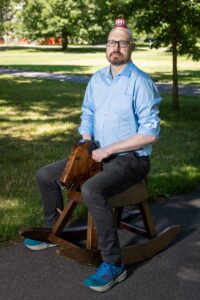 Charlie Green
Charlie Green
Originally from Arkansas, Charlie Green teaches in the Department of Literatures in English at Cornell University. His novel The Shah of Texas was published this year. His collection of poems, Feral Ornamentals, was published in 2021 by Finishing Line Press. His writing has appeared in Image, The New England Review, and The Southeast Review, among other venues.
The Shah of Texas (novel)
Feral Ornamentals (poems)
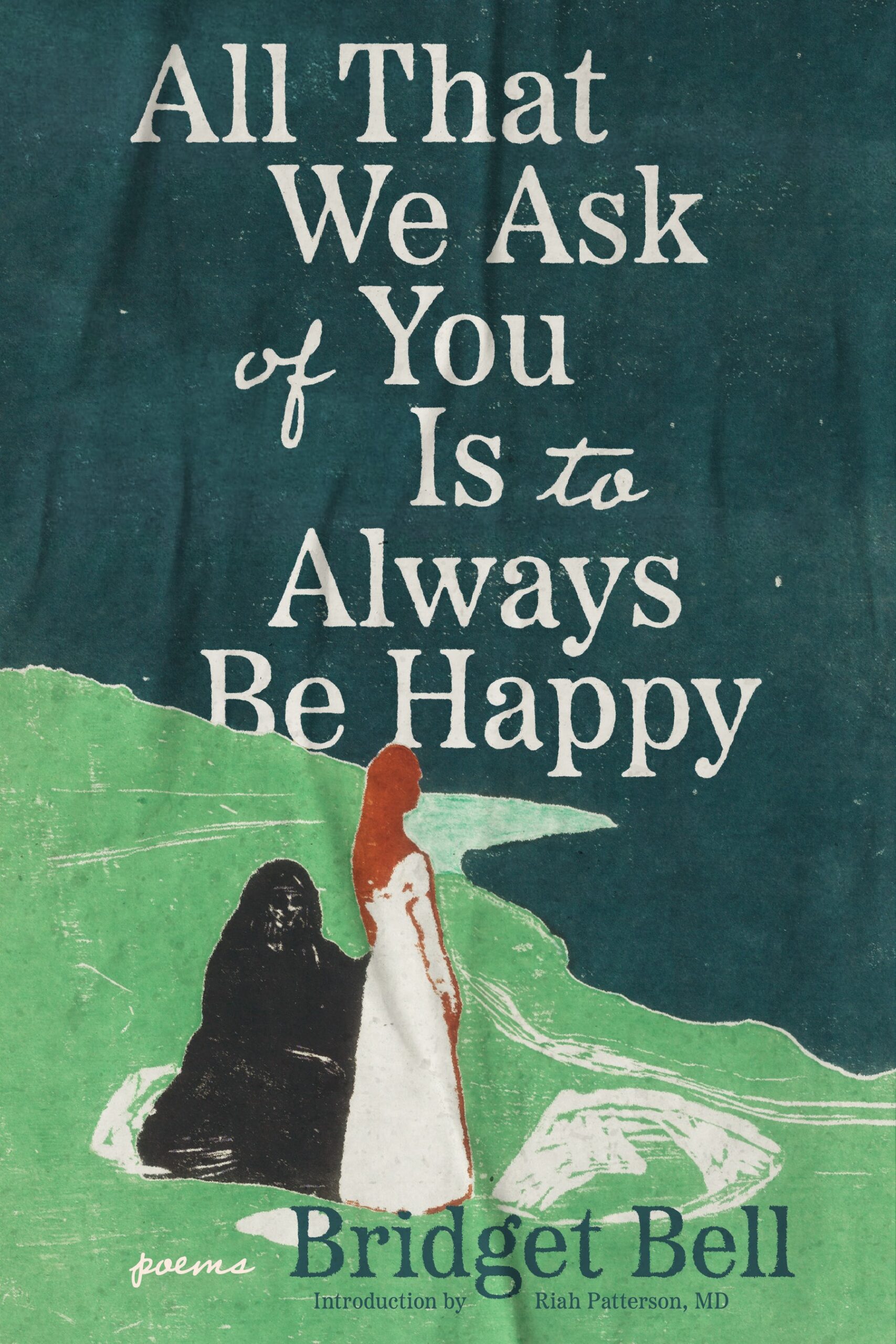
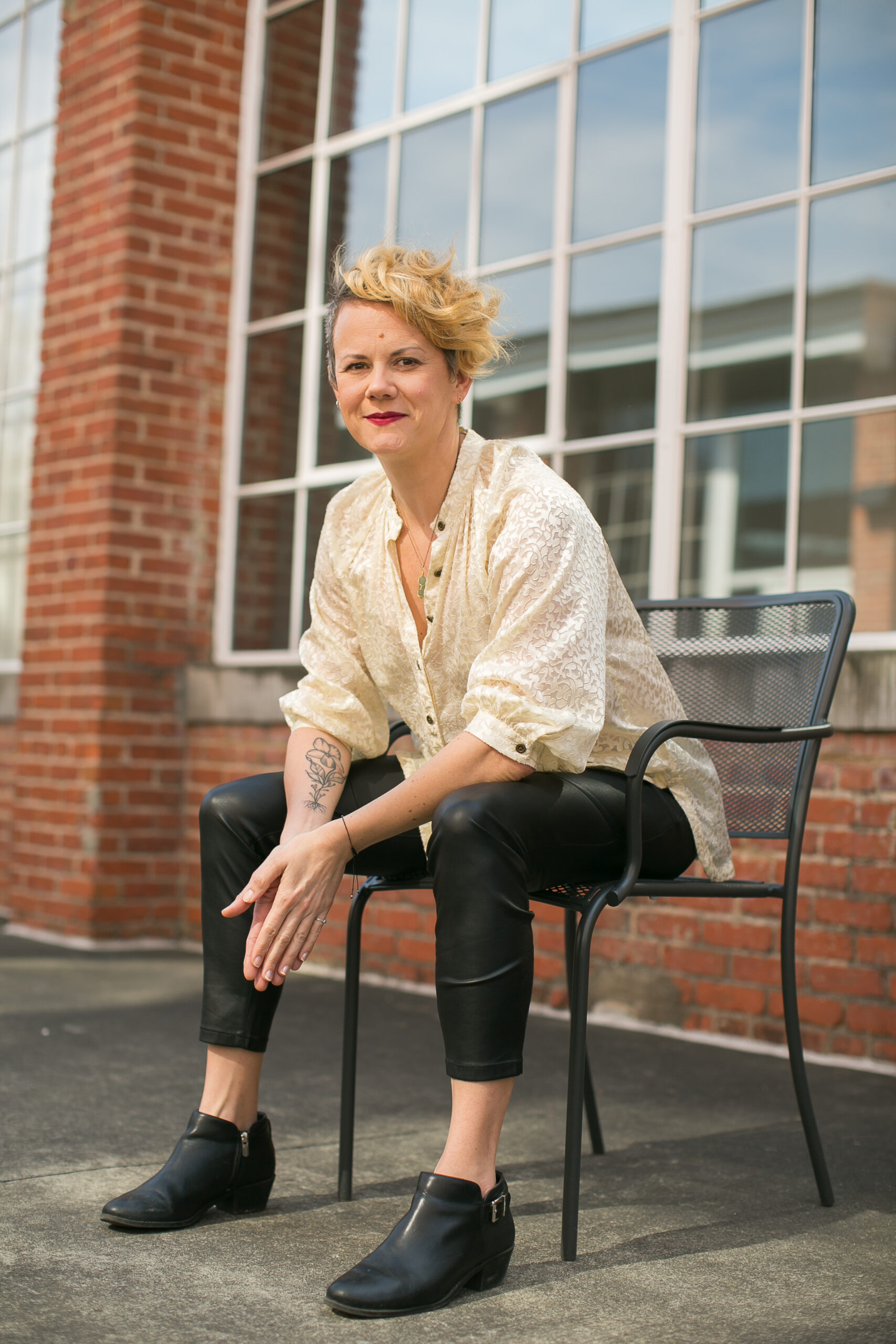 Bridget Bell’s debut poetry collection—All That We Ask of You Is to Always Be Happy (CavanKerry, 2025)—explores maternal mental health. She is the recipient of a North Carolina Arts Council Artist Support Grant and teaches composition and literature at Durham Technical Community College. Additionally, she pours points at Ponysaurus Brewery in Durham, NC and proofreads for Four Way Books, a literary press based in Manhattan. Originally from Toledo, Ohio, she is a graduate of Sarah Lawrence’s MFA program in creative writing. You can find her online at
Bridget Bell’s debut poetry collection—All That We Ask of You Is to Always Be Happy (CavanKerry, 2025)—explores maternal mental health. She is the recipient of a North Carolina Arts Council Artist Support Grant and teaches composition and literature at Durham Technical Community College. Additionally, she pours points at Ponysaurus Brewery in Durham, NC and proofreads for Four Way Books, a literary press based in Manhattan. Originally from Toledo, Ohio, she is a graduate of Sarah Lawrence’s MFA program in creative writing. You can find her online at 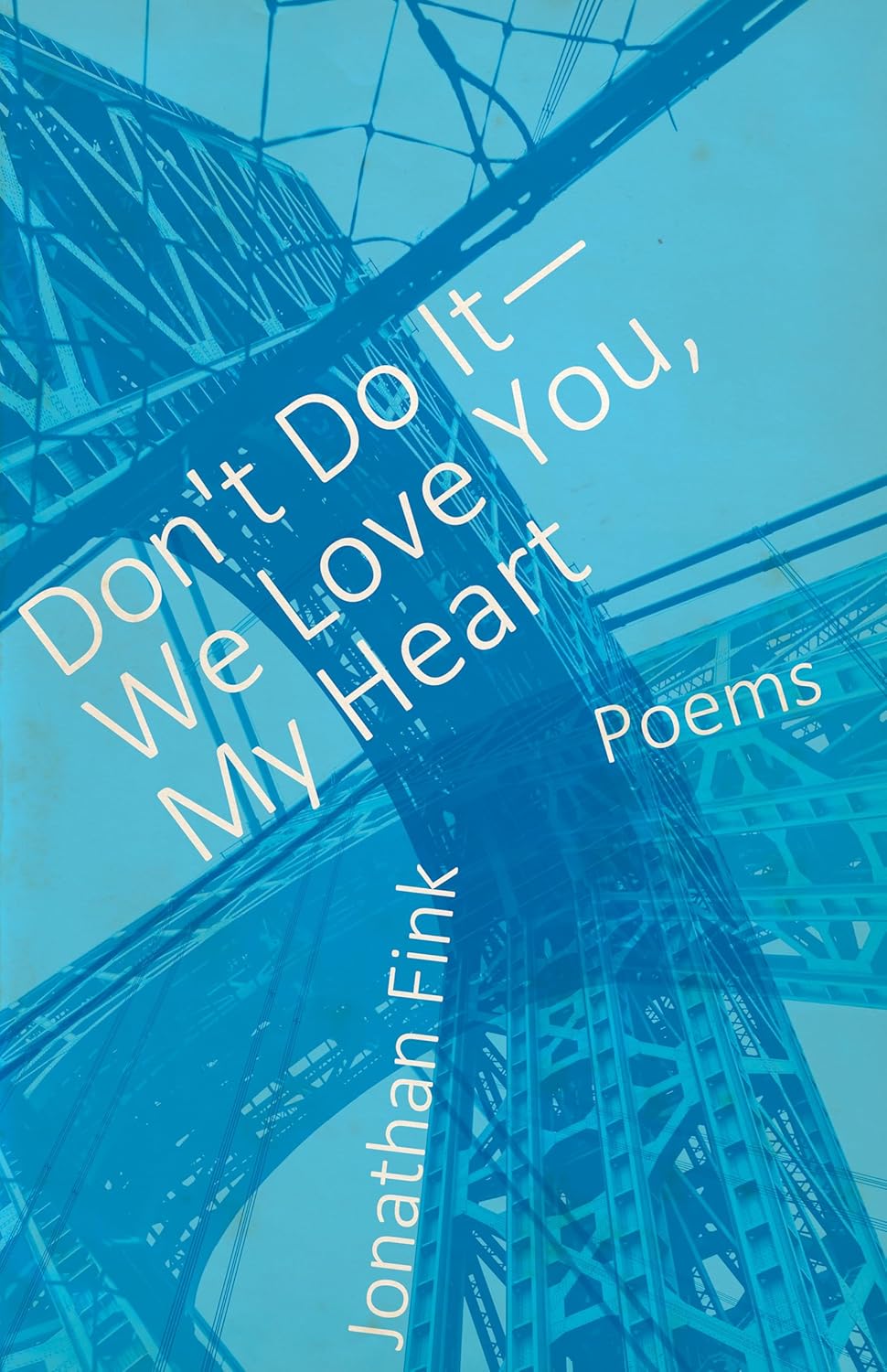
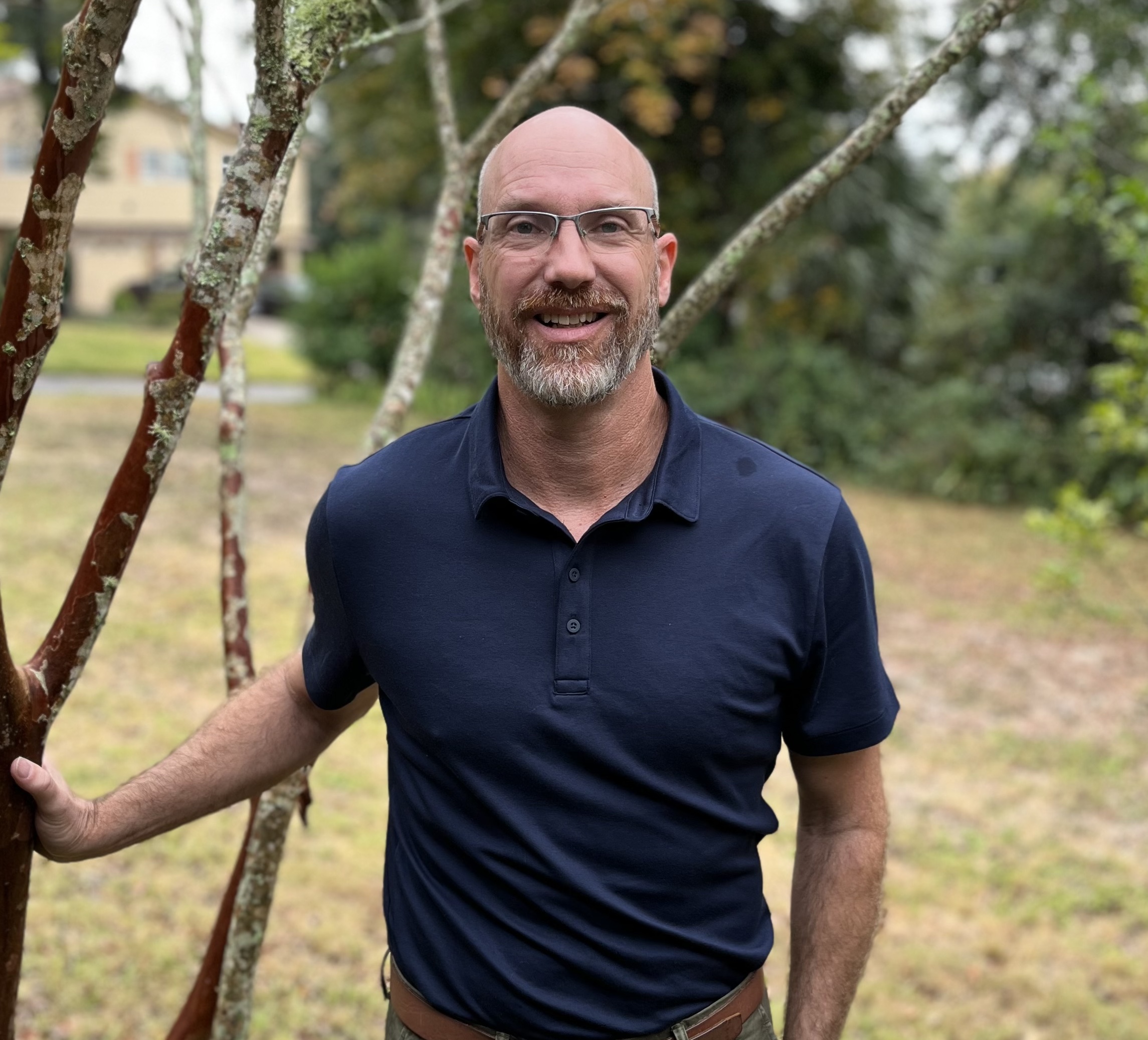 Jonathan Fink is Professor and Coordinator of Creative Writing at University of West Florida. His most recent book of poetry is Don’t Do It—We Love You, My Heart (Dzanc, 2025). He has also received the Editors’ Prize in Poetry from The Missouri Review, the McGinnis-Ritchie Prize for Nonfiction/Essay from Southwest Review, the Porter Fleming Award in Poetry, and fellowships from the National Endowment for the Arts, Joshua Tree National Park, the Florida Division of Cultural Affairs, and Emory University, among other institutions.
Jonathan Fink is Professor and Coordinator of Creative Writing at University of West Florida. His most recent book of poetry is Don’t Do It—We Love You, My Heart (Dzanc, 2025). He has also received the Editors’ Prize in Poetry from The Missouri Review, the McGinnis-Ritchie Prize for Nonfiction/Essay from Southwest Review, the Porter Fleming Award in Poetry, and fellowships from the National Endowment for the Arts, Joshua Tree National Park, the Florida Division of Cultural Affairs, and Emory University, among other institutions.
 Amy Stuber has published fiction in New England Review, Missouri Review, Copper Nickel, and elsewhere. She’s a flash editor at Split Lip Magazine. Her debut collection, SAD GROWNUPS, comes out October 8 from Stillhouse Press.
Amy Stuber has published fiction in New England Review, Missouri Review, Copper Nickel, and elsewhere. She’s a flash editor at Split Lip Magazine. Her debut collection, SAD GROWNUPS, comes out October 8 from Stillhouse Press.
 Pat Spears is the author of three novels and numerous short stories. Her second novel, It’s Not Like I Knew Her, won the bronze medal for Foreword Review’s Book of the Year in LGBTQ Fiction. Her short stories have appeared in numerous journals, including North American Review, Sinister Wisdom, Appalachian Heritage, Common Lives, Lesbian Lives, and Seven Hills Review, and anthologies including Law and Disorder (Main Street Rag), Bridges and Borders (Jane’s Stories Press), Saints and Sinners: New Fiction from the Festival 2012, and Walking the Edge: A Southern Gothic Anthology (Twisted Road Publications). She is a sixth generation Floridian and lives in Tallahassee, Florida with her partner, two dogs, and one rabbit.
Pat Spears is the author of three novels and numerous short stories. Her second novel, It’s Not Like I Knew Her, won the bronze medal for Foreword Review’s Book of the Year in LGBTQ Fiction. Her short stories have appeared in numerous journals, including North American Review, Sinister Wisdom, Appalachian Heritage, Common Lives, Lesbian Lives, and Seven Hills Review, and anthologies including Law and Disorder (Main Street Rag), Bridges and Borders (Jane’s Stories Press), Saints and Sinners: New Fiction from the Festival 2012, and Walking the Edge: A Southern Gothic Anthology (Twisted Road Publications). She is a sixth generation Floridian and lives in Tallahassee, Florida with her partner, two dogs, and one rabbit.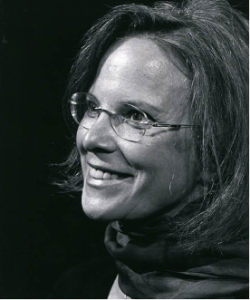 Carolyn Forché is the author of five books of poetry, most recently In the Lateness of the World(Penguin Press, 2020), a finalist for the Pulitzer Prize, and also Blue Hour (2004), a finalist for the National Book Critics Circle Award, The Angel of History(1995), winner of the Los Angeles Times Book Award, The Country Between Us(1982), winner of the Lamont Prize of the Academy of American Poets, and Gathering the Tribes (1976), winner of the Yale Series of Young Poets Prize.
Carolyn Forché is the author of five books of poetry, most recently In the Lateness of the World(Penguin Press, 2020), a finalist for the Pulitzer Prize, and also Blue Hour (2004), a finalist for the National Book Critics Circle Award, The Angel of History(1995), winner of the Los Angeles Times Book Award, The Country Between Us(1982), winner of the Lamont Prize of the Academy of American Poets, and Gathering the Tribes (1976), winner of the Yale Series of Young Poets Prize.